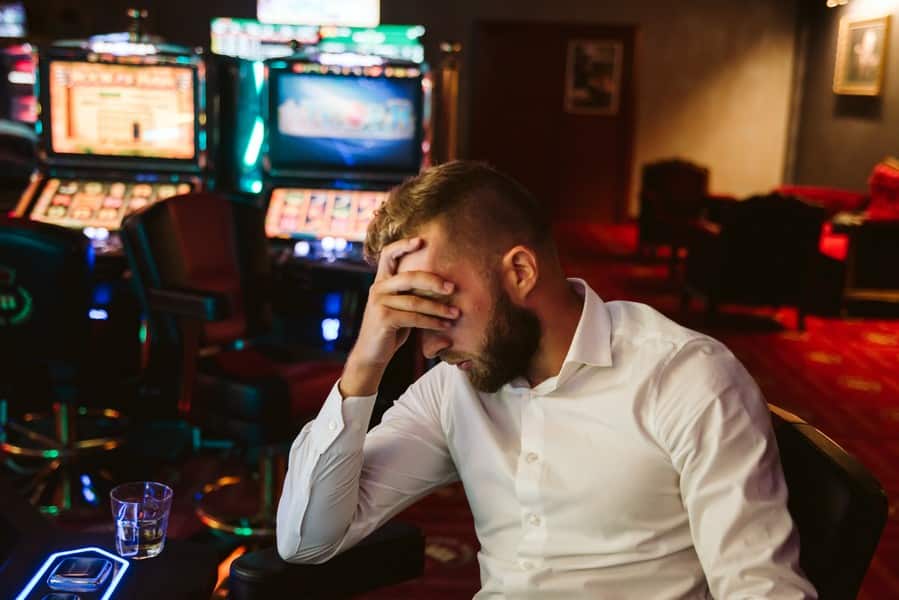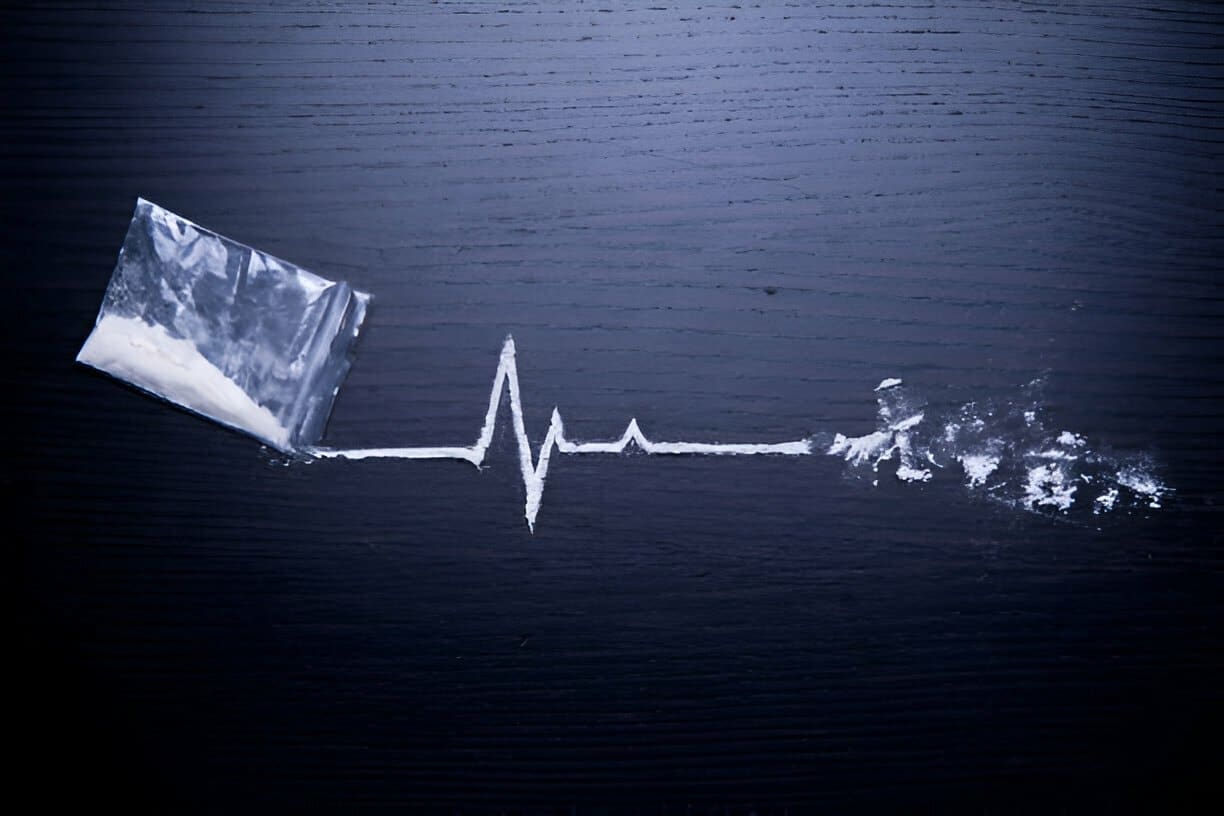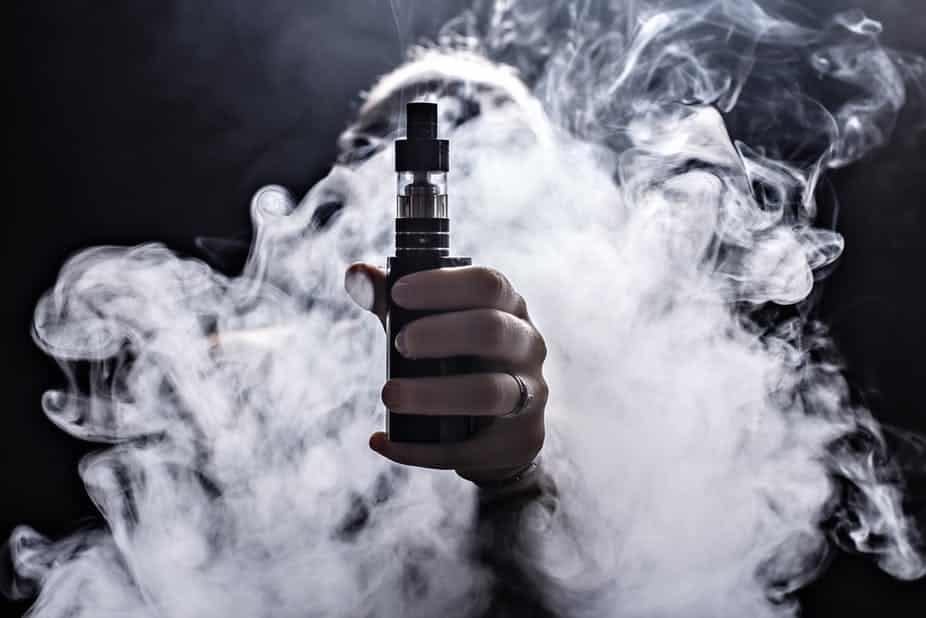Almost everyone has at one point engaged in some form of gambling. Whether it’s a high-stakes decision like investing in the stock market or a low-stakes decision like trying a new dish for dinner, the bulk of our choices can backfire.

When things go smoothly, we feel good about ourselves and our accomplishments. When things go wrong, we keep trying. This behaviour was critical to human evolution. Our brains are wired to reward risk with pleasant emotions, which propels us onward in our pursuit of creativity and success. The emotional reward grows in proportion to the risk.
This mechanism has gotten us this far as a species, but it also has the potential to backfire disastrously. Gamblers addicted to the thrill of a significant win can lose thousands of pounds in a single evening. Their exhilaration when a risk comes off is so pleasurable that they learn to want it. When a bet goes wrong, placing another bet appears to be the best way to deal with the emotional fallout that comes with losing.
Casinos, slot machines, and online gambling sites are all designed to capitalise on our innate need to take risks while ensuring that the gambler will always lose in the long term. The risk-reward rollercoaster that these companies provide can be quite appealing and, over time, can develop into addiction.
The terms “problem gamblers” and “compulsive gamblers” are commonly used to describe individuals affected by gambling addiction. At the same time, “ludomania” (from the Latin words for “game” and “madness”) is a term that has traditionally been used by doctors without necessarily representing a formally agreed set of diagnostic criteria. As previously stated, “pathological gambling” and “gambling disorder” can be diagnosed when certain conditions are met.
Although this is not true in every society, gambling has long been regarded as a damaging vice in the United Kingdom, but betting (headed by the horseracing business) has been legalised and regulated for many years. Anyone over the age of 18 can legally go to a bookmaker, stroll into a casino, or gamble online.
As a result, we are now surrounded by opportunities to place a bet – not just on the High Street but on television and even on the devices we carry around with us all the time (one of the biggest challenges facing recovering addicts).
Despite widespread awareness of the harm that problem gambling can cause, occasional betting does not necessarily carry a stigma – indeed, betting on the Grand National has almost become an annual national tradition.
Incidentally, there are no offputting or discouraging social elements associated with gambling as there are with, say, taking heavy drugs (even though the possible consequences can be equally catastrophic).
Gambling is associated with excitement, as it allows you to become personally invested in the outcome of potentially relevant events (especially sporting events). Indeed, many betting companies have long emphasised this in their marketing materials (“It means more when there’s money on it”).
The adrenaline rush of a football match, a close race, or a tense boxing match might be exhilarating, almost primal – but unless you are entirely devoted to your side, the outcome will usually have minimal impact on your daily life. However, even a small wager can change that: watching even the most exciting football event will not put money in your pocket, whereas betting allows you to enjoy both the joys of watching and the satisfaction of having made money.
Of course, not all gambling stems from watching sports. It’s easy to exaggerate the link between the thrill of gambling and things like high-profile sporting events that are meant to be exciting in their own right. Someone might first start gambling on fruit machines in pubs or playing cards with friends, and these are activities with little or no “thrill” beyond the gambling itself. However, as any gambling addict will attest, that rush can become far more powerful – and perhaps life-changing – than any sport you might see live or on TV.
People begin gambling for the joy of winning. It’s generally believed that someone whose first couple of gambling experiences result in unpleasant losses is unlikely to develop a gambling problem in the future (though that negative reinforcement, unfortunately, ceases to have an effect once gambling has become habitual).
However, one of the worst things that can happen to someone is for them to have a couple of big wins when they are young – but winning is only one of two main pleasures (and, counterintuitively, the less important of the two) typically produced by gambling. The other is the thrill of the risk, and it is this sensation that is usually the most powerful driver of addiction and the one craved by the brain of a gambling addict. In other words, we may begin gambling for the thrill of winning, but we continue for the thrill of gambling itself.
Don’t go through the process of recovery alone. Treatment providers can answer your questions. Get in touch with one today.
Call 0800 999 1083 today!
Most gambling involves putting money on the line, and, understandably, the gaming industry has centred on this type of wagering. Sports betting (including horseracing and spread betting) and events betting (for example, betting on election results) are the most popular – and harmful – forms of gambling in the UK. Bets can be placed in brick-and-mortar bookmakers or online; fruit machines and fixed-odds betting terminals (FOBTs – usually found in betting shops or casinos); a casino and card games (with versions also available online); and lotteries and scratchcards.

Although not commonly referred to as gambling, certain types of investment, such as the stock market, can exhibit many of the same characteristics as gambling and result in comparable behavioural patterns and problems.
Experts frequently split the progression of gambling addiction into a few essential stages, even though each case of addiction is unique.
Winning on the first bets. A gambler may feel an amazing surge of success early on, especially if their first few gambling encounters result in significant gains, believing that they have discovered the secret to wealth and that their own skills and talents will see them prevail where so many others have failed. This is especially true in games like poker or market betting, where a degree of skill can be advantageous in addition to pure luck. The gambler may begin to focus more and more on betting, excluding other activities, and wager ever-larger sums (perhaps as a result of erroneous thinking such as the well-known “gambler’s fallacy”).
Losing. The gambler may become increasingly focused on recouping the money they’ve lost – which may have been set aside for other objectives, therefore having a substantial impact on the gambler’s relationships – and may start taking ever greater risks in order to chase that lost money after a few large losses. As a result of the impact of process addiction on brain chemistry, the initial pleasure they felt may have faded, and the compulsion to gamble may have taken over. They may begin to spend more and more time alone betting, and their relationships, career, academic pursuits, and finances may suffer as a result.
Desperation. Betting can become the focal centre of a gambler’s life after a while, with many of their life prospects being harmed or ruined entirely as a result of their losses and the impact of their addiction on their daily lives, including even their most prized relationships. They can’t stop gambling even if they’re down to their last pound or if they’ve borrowed money to buy food and other needs. They may engage in criminal activity, such as fraud, theft, or other forms, to fund their habit, and they may be at risk as a result of loans taken out to fund gambling and repay other obligations. In the face of what they perceive to be a hopeless situation, many gamblers who have reached this point may engage in suicidal ideation or even attempt suicide.
It might be difficult to recognise the signs that you or someone close to you has a gambling problem. Money troubles brought on by gambling, as well as the gambler’s reactions to this event, are frequently the first signs. There are, however, other signs and symptoms to be aware of:
Although the brain’s mechanism for gambling addiction is well understood, why can some people cheerfully place a fun wager every now and then, while others can’t quit gambling even when it’s causing them harm?
The answer could be found in one or more of the following factors:
Growing up in a household where gambling is the norm dramatically raises the likelihood of developing gambling issues later in life. An abusive or neglectful upbringing might also play a role, as it can lead to psychological problems later in life, from which gambling can appear to be a distraction. Furthermore, gambling can give a sense of success, both financially and socially, which is appealing to people who have poor self-esteem.
According to studies, family genes play a crucial role in predicting whether or not a person becomes addicted to gambling. According to twin studies, if other members of one’s immediate family have gambling or other addictions, the risk of getting one is 50% higher. However, what is inherited is not a gambling addiction per such, but sensitivity to several factors. This may explain why, more than other addictions, gambling addiction is frequently accompanied by substance or alcohol abuse, mood disorders, or antisocial personality disorders.
Many people who begin gambling have no idea that the odds are stacked against them and that even if they win initially, they will never be able to profit in the long run. They frequently misinterpret that gambling outcomes are entirely random and unrelated to previous outcomes and that any “system” developed by the gambler will not succeed.
Addiction has the potential to be fatal. Even in the short term, a gambler can gamble away their life savings at the bookies in a matter of minutes – but, in the long run, if the maxim “the house always wins” is remembered, financial collapse is nearly inevitability. The more and longer one gambles, the more likely one is to lose everything. Of course, some forms of gambling provide enormous, life-changing awards for a very small investment – but even here, there’s no assurance that such large funds will last long: the vast majority of big lottery winners spend their winnings within a decade.

History is riddled with stories of gambling addicts who have abandoned not only themselves but their families, and even in the absence of such tragedy, their deception and erratic behaviour can irreversibly harm relationships. The impact on a gambler’s relationships with others is often quite negative: simply being with someone in the grip of such an addiction can be incredibly painful, so even when a gambler is not fleeing into isolation, they may find themselves deprived of company, even that of previously beloved friends. Meanwhile, the financial consequences for a gambling addict’s spouse/partner, as well as any children or other dependents, can be scary – especially when both parties own key assets such as a home.
Problem gambling can have long-term health consequences, with depression frequently leading to self-harm and suicide and physical health issues as a result of stress, unhealthy eating and sleeping habits, and other factors; gambling addictions often coexist with substance abuse disorders, which have their own physical and mental health implications. If a gambler uses unconventional funding techniques such as borrowing from potentially violent loan sharks or engaging in criminal activity, their health and safety (and even that of their loved ones) may be jeopardised.
Meanwhile, a gambler’s credit score can be permanently affected (though bankruptcy can have even more serious consequences), and their reputation can be quickly ruined: once someone develops a reputation as a problem gambler (or “degenerate,” in more judgmental terms), it can be difficult to shake it off, and many people are unwilling to place any trust in a gambling addict for fear of it being betrayed.
Research has shown that gambling addiction often coexists with other mental health problems, as well as other forms of addiction.

The degree to which gambling addiction is a result of, a cause of, or just coexists with any other disorder/s (known as “comorbidity”) varies from person to person, and there is no universal rule that someone with a gambling addiction will also have any other disorder.
Typically, the most common diseases developing (with a reasonable degree of certainty) from gambling addiction include anxiety disorders, depression and other mood disorders, and substance abuse disorders. In contrast, a wide range of other conditions, such as kleptomania, have also been linked to gambling addiction, maybe as a result of a desire to earn money but later becoming a clinical condition.
Individuals who gamble for the thrill of it are more prone than the average to seek other sorts of excitement as well, with stimulants such as cocaine (which can also make the user feel more confident in their own judgement) and other euphoria-inducing substances particularly popular; alcohol, meanwhile, is both common and legal in the UK, and its disinhibitory effects mean those under the influence are far more inclined than normal to begin or continue, gambling. Heavy gamblers may use stimulants to keep awake over long periods of gambling (for example at gaming tables or playing cards online).
If any of the above applies to you or a loved one, it’s time to consider gambling addiction treatment. Compare Rehab UK can answer any questions you may have and provide information on where you can obtain the help you require. Call us right now on 0800 999 1083
Even though gambling addiction is a serious, destructive disorder caused by several biological and psychological factors, it does not require a detox programme like alcohol or drug addiction treatment. Instead, a combination of different types of therapy, group support, and rehabilitation tools can be used to treat it successfully.
The following are some of the most common treatments for gambling addiction:

CBT is a very active form of therapy that employs a variety of tactics such as role-playing, storytelling, and homework.
A mental health professional can facilitate this type of therapeutic group. Members of a group therapy session share their experiences, coping mechanisms, hopes, and challenges.
Individual therapy, in which the patient works one-on-one with a therapist, aids in the development of the gambler’s knowledge of their addiction and aids in their recovery.
Friends and relatives of gambling addicts face various obstacles, including financial difficulties, lying, and deception, which can make it difficult for them to support the gambler in their recovery. This therapy can help create a supportive environment for the patient’s recovery.

BACP accredited psychotherapist with 16 years experience working in mental health specialising in psychodynamic person-centred therapies treating those with a range of mental health disorders including anxiety, depression, OCD and Addiction.

Fill in your details and we’ll send you a message via SMS.

No matter where you live, there are drug and alcohol rehab options for you to discover. Treatment providers are waiting to answer your questions. Get started today.

Ever felt that gnawing ache or burning sensation in your gut after a night of drinks? You’re not alone. Stomach pain after drinking is a common complaint, and there are a few reasons why it might happen. Let’s delve into the science behind the discomfort and explore ways to soothe your stomach. The Irritating Truth: … Continued

Cocaine, a stimulant known for its short-lived burst of energy and euphoria, hides a dark side. Behind the initial high lies a dangerous potential for overdose, with severe health consequences and even death. This article delves into the world of cocaine overdose, equipping you with the knowledge to recognize the signs, understand the dangers, and … Continued

Adult smoking habits in the UK refer to how often and in what ways people aged 18 and above use tobacco. This includes everything from smoking cigarettes every day to occasionally lighting up, as well as using other tobacco products. Understanding these habits is important for several reasons: Public Health: Smoking causes many diseases that … Continued

Addiction in the UK is a complex issue that is connected to various aspects of society such as healthcare and law enforcement. It affects people from all backgrounds and has negative impacts on families, communities, and the entire nation. Understanding addiction involves not only looking at the uncontrollable use of substances and repetitive behaviors but … Continued

Don’t go through the process of recovery alone. Treatment providers can answer your questions. Get in touch with one today.
Call 0800 999 1083 today!








